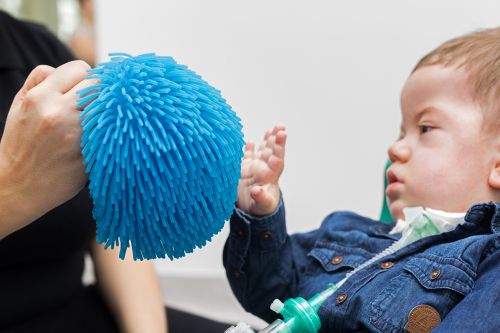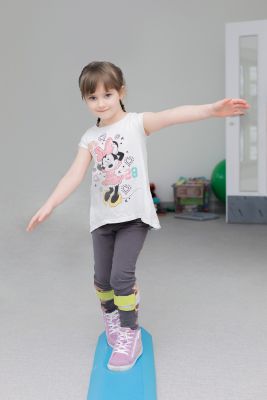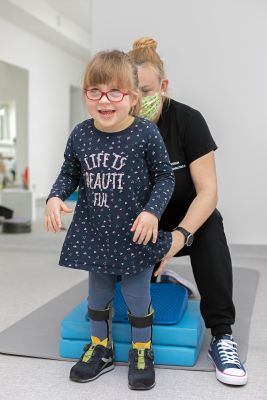Child therapy
Sensory integration
Sensory processing is a process in which our nervous system receives information from the receptors of all senses: touch, sight, hearing, taste, smell, vestibular system (movement), proprioception (body sensation), then recognizes, organizes and interprets them in such a way, so that they can be used for deliberate action.
The abnormalities of this process are sensory integration disorders. They have a huge impact on human behavior and learning.
We distinguish:
-
sensory modulation disorders, which consist in incorrect perception of the intensity of stimuli,
-
sensory differentiation disorders, consisting in incorrect reading of the quality and properties of stimuli,
-
movement disorders with a sensory basis, consisting in improperly developed postural and movement patterns.

The diagnosis of sensory integration processes is carried out by a qualified SI therapist. The diagnosis process usually includes 2-3 meetings, during which the therapist conducts a detailed interview with parents, clinical observation, observes the child during spontaneous play and conducts standardized tests (children over 4 years of age).
Selected symptoms that may indicate disorders of sensory integration:
- hypersensitivity or poor reaction to stimuli,
- delayed motor development,
- delayed speech development,
- poor balance and coordination,
- problems with muscle tension,
- excessive anxiety, irritability, impulsiveness,
- problems with concentration,
- hyperactivity,
- difficulties with fine motor skills,
- food selectivity.


Make an appointment or find out more - Call us!
